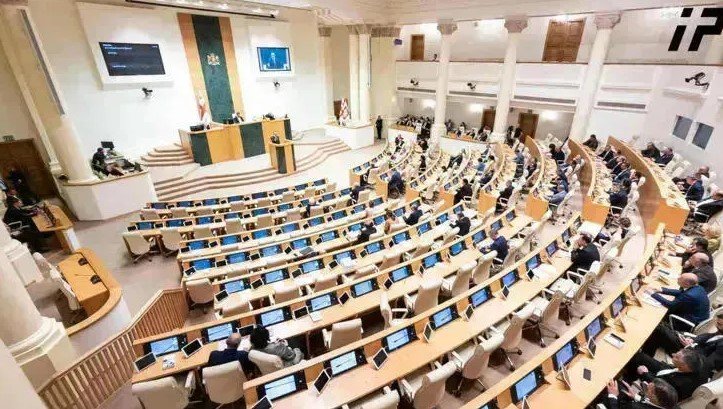In 2023, Transparency International (TI) Georgia reported that the Georgian Parliament had become increasingly closed and inaccessible. The report highlighted significant restrictions on access for civil society representatives and critical media, citing general security regulations without specific justifications. This shift towards non-transparency has raised concerns about the Parliament’s role in the country’s democratic processes, especially as Georgia seeks to align with European Union standards.
Increased Restrictions and Lack of Transparency
The report by TI Georgia detailed how the Parliament had ceased releasing public information that could be used to criticize Members of Parliament (MPs). This included data on speeches delivered by MPs, disciplinary actions, and committee activities. The lack of transparency has made it difficult for civil society and the media to hold the Parliament accountable.
The denial of access to parliamentary sessions and committee meetings has further exacerbated the issue. Representatives of civil society and the media have been barred from attending these sessions, limiting their ability to monitor and report on parliamentary activities. This move has been criticized as a step back for democratic governance in Georgia.

The restrictions have also impacted the public’s perception of the Parliament. With limited access to information and oversight, there is growing concern about the accountability and transparency of parliamentary proceedings. This situation has prompted calls for reforms to ensure that the Parliament remains open and accessible to all stakeholders.
Impact on EU Accession Process
The closure of the Parliament has significant implications for Georgia’s EU accession process. The European Union has emphasized the importance of transparency and democratic governance as key criteria for membership. The recent developments in the Georgian Parliament have raised questions about the country’s commitment to these principles.
In 2023, Georgia was granted candidate status for EU membership, marking a pivotal moment in its European integration journey. However, the lack of transparency in the Parliament could hinder progress towards full membership. The European Commission has outlined several conditions that Georgia must meet, including improving parliamentary oversight and ensuring transparency in governance.
The report by TI Georgia has highlighted the need for urgent reforms to align with EU standards. This includes restoring access to parliamentary sessions and committee meetings for civil society and the media. By addressing these issues, Georgia can demonstrate its commitment to democratic principles and strengthen its case for EU membership.
Response from Civil Society and Media
The restrictions imposed by the Parliament have sparked significant backlash from civil society organizations and the media. These groups have been vocal in their criticism, calling for greater transparency and accountability in parliamentary proceedings. They argue that an open and accessible Parliament is essential for democratic governance and public trust.
Civil society organizations have been actively advocating for reforms to restore access to parliamentary sessions and committee meetings. They have also called for the release of public information that has been withheld by the Parliament. These efforts aim to ensure that the Parliament remains accountable to the public and upholds democratic principles.
The media has played a crucial role in highlighting the issue and raising public awareness. Journalists have reported on the restrictions and their impact on transparency and accountability. Their efforts have been instrumental in keeping the issue in the public eye and pushing for necessary reforms.
